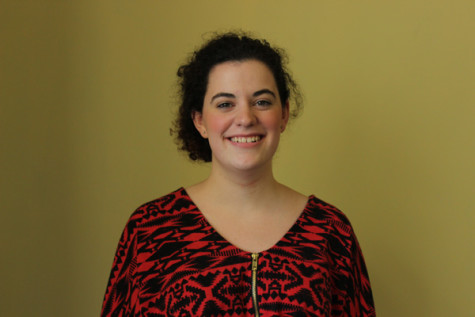More than 110 students crowded into Blackington 138 Thursday to listen to an exonerated death row inmate telling his story.
Kirk Bloodsworth said he was the first person in America to use DNA evidence to get off death row. Before that, he said, he spent over eight years in prison.
Bloodsworth said he was twice convicted of raping and murdering a 9-year-old girl, Dawn Hamilton. He said he was sentenced to two life sentences.
In July 1984, he said, Hamilton was found dead in a Maryland forest. She was naked from the waist down and her throat and head were crushed, he said.
Around 2:45 a.m. Aug. 9, Baltimore County police charged him for the crimes against Hamilton.
Bloodsworth described many breaks from protocol that contributed to his conviction.
Five witnesses positively identified him in a lineup, he said, after they had already seen television coverage of him being a suspect.
Two boys, a 10-year-old and an 8-year-old, were allowed to collaborate on a composite sketch, he said, and were not content with it.
The prosecutors, he said, had considered other suspects but had not told his defense of the suspicion of others.
While in a Maryland penitentiary, he said, Bloodsworth read a book about the first use of DNA fingerprinting. He said this inspired him to request a DNA test.
At first, he said, his request was not met because his case’s evidence was misplaced. Eventually, he said, it was found in a paper bag in a judge’s closet.
June 28, 1993, Bloodsworth was released from prison once a DNA test showed him to be innocent, he said.
In 2003, a DNA match was found, he said, for a man named Kimberly Shay Ruffner. Ruffner had been in prison with Bloodsworth, Bloodsworth said, for attempted murder.
His message, Bloodsworth said, is that people should not be adversarial against the truth. He said that an innocent person is released from prison every three days.
College Republican member Kyprian Wojciehowski said that, for this reason and more, he is against the death penalty. His club members sponsored the event, he said, along with History Club, Psychology Club and Student Government Association members.
He said he appreciated hearing about Bloodsworth’s epiphany when reading about DNA fingerprinting.
Wojciehowski said he was pleased with the event’s audience size and hopes to do something similar next year.
Sociology and criminal justice professor Ross Kleinstuber said he agreed.
“I’m elated,” he said. “I wish I had gotten a bigger room.”
Kleinstuber said that he got the idea to invite Bloodsworth when he attended a play called “The Exonerated.” At the play, he met members of Witness to Innocence, an organization in which Bloodsworth is a member.
Kleinstuber said he hopes his students who attended learn what prison is like and feel empowered to improve the judicial system.
Most importantly, he said, he hopes his students realize that the judicial system is fallible. Since many of his students hope to work within the judicial system, he said, he wants them to remember they can make errors and to check themselves.
Bloodsworth said he now lives near Philadelphia and makes jewelry.

